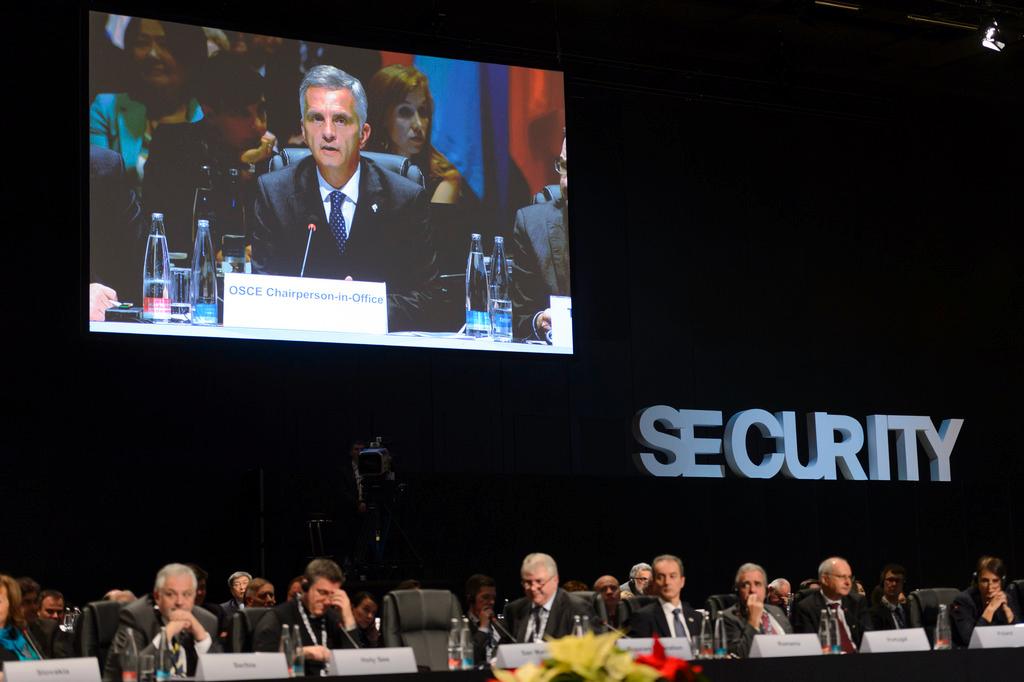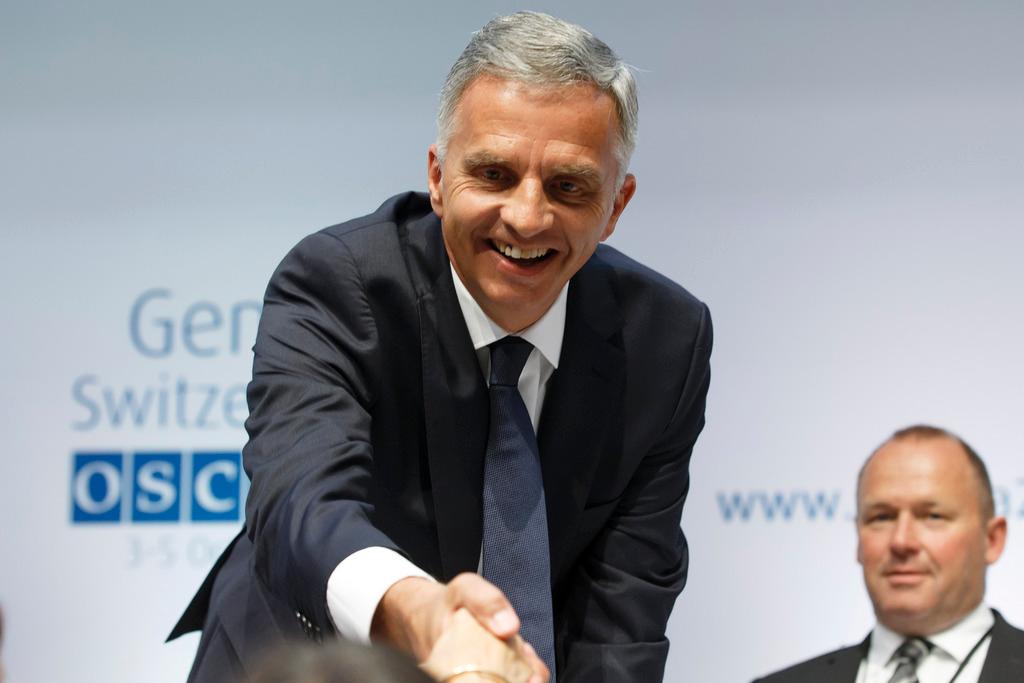OSCE meeting ends with no Ukraine consensus

Switzerland has won praise for its presidency of the Organization for Security and Cooperation (OSCE), which has now come to an end. But a key meeting in Basel has failed to find a compromise over Ukraine.
The gathering of foreign ministers for OSCEExternal link countries did however make progress in the areas of moves against terrorism and kidnapping.
“With 53 Ministers and around 1,300 delegates we have had a record participation,” said Swiss Foreign Minister Didier Burkhalter, who acted as Switzerland’s OSCE chairperson-in-office during the presidency.
“More important than the statistics is the fact that we had two days full of dialogue, of sometimes heated debates, but always with a view to finding common ground,” he said in his closing remarks on FridayExternal link.
Ukraine formed the heart of these heated debates. The United States, European Union, Germany and many other Western nations expressed strong criticism of Russia’s role in the Ukraine conflict during the gathering. But Burkhalter said enough “major differences” remained to prevent the group at the meeting – which included Russia – from adopting a consensus statement on Ukraine.
However, ministers were able to agree on moves to prevent terrorists from benefiting directly or indirectly from ransom payments External linkor from political concessions and for countering the phenomenon of foreign terrorist fighters.
Also gaining backing was the Swiss-supported proposal for a high-level panel of eminent people from across the OSCE to work on European security issues, in particular improving dialogue across the Euro-Atlantic and Eurasian regions.
“Privilege”
Burkhalter said it had been “a privilege” for Switzerland to chair the OSCE and that the country remained fully committed to the efforts to resolve the Ukraine crisis. He added that with Germany and Austria following the Serbian Chairmanship in 2016 and 2017, “the future of this organisation is in good hands”.
Switzerland itself has come in for a lot of praise for its OSCE presidency year, in particular with United States Secretary of State John Kerry and German Foreign Minister Frank-Walter Steinmeier thanking Burkhalter for his work.
Many had thought the OSCE had had its day, but the last few months have shown what an important role it can play, said Steinmeier.
French Secretary of State for European Affairs, Harlem Désir, speaking on Swiss public radio, said the work on Ukraine had given Swiss diplomacy international “visibility”.
For his part, security expert Christian Nünlist said in another public radio programme that Switzerland had tried to keep dialogue with Russia open.
Serbia, as next year’s holder of the presidency, might find this role of bridge between east and west Europe more difficult, given its relations to Russia, said Nünlist. But he added that Serbia was aware of this and that it was also good that Germany had stepped into the presidency for 2016.
“I think this triangle of Switzerland, Serbia and Germany will also ensure that there is continuity next year and that the Swiss activities from 2014 will be maintained. In this sense, there is hope that everything will continue in a positive way,” he said.

In compliance with the JTI standards
More: SWI swissinfo.ch certified by the Journalism Trust Initiative


You can find an overview of ongoing debates with our journalists here. Please join us!
If you want to start a conversation about a topic raised in this article or want to report factual errors, email us at english@swissinfo.ch.